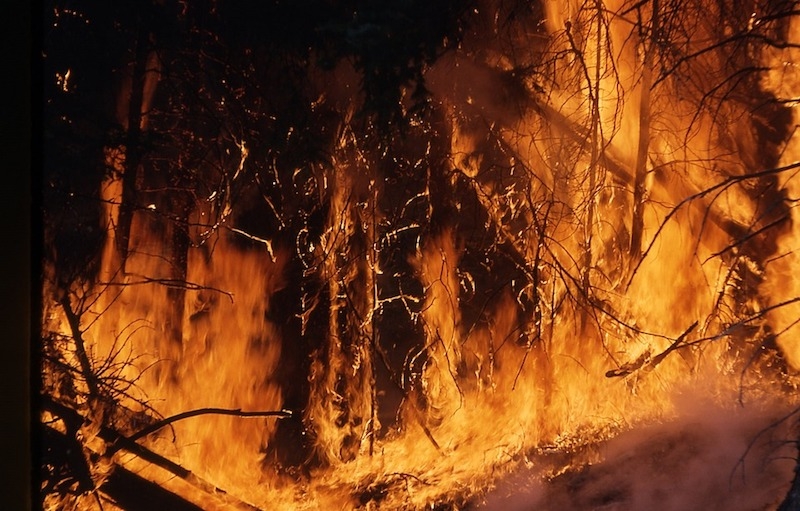The most effective way to reduce deaths and property destruction from California wildfires would be to stop building in fire-prone areas, and make structures that already exist in those areas more resilient.
It's a simple and sound strategy, but it would also be expensive and wildly unpopular. People want to live in the state's stunning wooded landscapes and making homes, businesses, and neighborhoods more fire-resistant could be hugely expensive.
Experts say as climate change causes more frequent and destructive blazes, anything less won’t make enough of a difference to prevent the devastating fires that have swept through the state in the past few weeks, though. California uses the most up-to-date version of model national codes, and doesn’t allow local governments to opt out of those codes.
New homes in places with the highest risk of wildfire get built with fire-resistant materials and construction techniques, but many older structures were not built to those standards. Furthermore, California’s aggressive wildfire codes don’t apply in neighborhoods that may appear safer on paper, but are increasingly affected as fires grow to the sizes that caused so much destruction recently.
Related Stories
Codes and Standards | Sep 22, 2021
Group proposes Carbon Use Intensity metric for new buildings
Plan would track embedded carbon on projects.
Codes and Standards | Sep 22, 2021
Illinois’s sweeping climate bill includes statewide stretch code, building electrification measures
Aims for zero-emissions power sector by 2045.
Codes and Standards | Sep 22, 2021
Cities need to step up flood mitigation efforts to save lives
Recent storms highlight climate change dangers.
Codes and Standards | Sep 21, 2021
Steps to improve ventilation for Covid can combat colds and flu
New look at airborne disease spread shows time viruses linger in air may have been underestimated.
Codes and Standards | Sep 15, 2021
USGBC will change leaders, conduct strategic review
Aims to ensure organization is ‘well positioned to scale its work in the post-pandemic world’.
Codes and Standards | Sep 15, 2021
LEED-certified offices earn higher rents than non-sustainable properties
Are also more resilient to dips in real estate market.
Codes and Standards | Sep 7, 2021
Boston turns to developer fees to fund flood protection infrastructure
Assessments on commercial properties will help build seawall and other protective measures.
Codes and Standards | Sep 3, 2021
Low-cost methods can have substantial impact on reducing embodied carbon
Whole-building design, material substitution, and specification strategies can slash carbon by up to 46%.
Codes and Standards | Sep 2, 2021
Case for power resiliency in buildings grows with more disaster and outages
Essential businesses like data centers, hospitals are first adopters of new storage systems.
Codes and Standards | Aug 31, 2021
UK industry group wants mandatory whole-life carbon assessments of buildings
Aims to address hidden emissions embedded in supply chains.

















